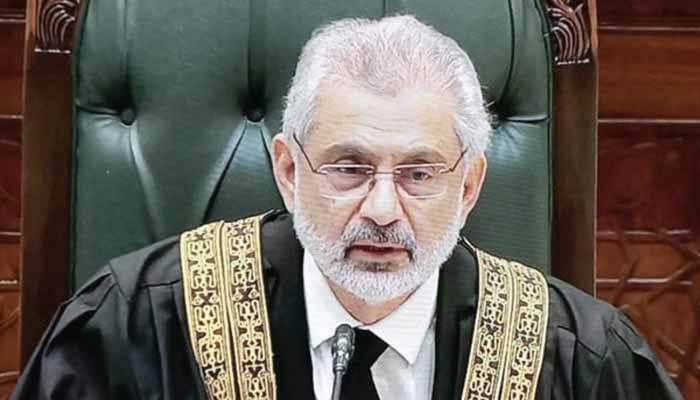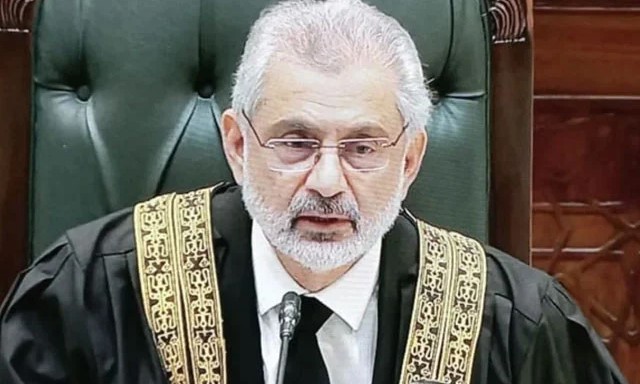LEGAL

The 26th Constitutional Amendment, which introduced significant changes to the process of appointing judges in Pakistan, has been formally challenged in both the Supreme Court and the Sindh High Court. Legal petitions have been filed by advocates Muhammad Anas and Elahi Baksh, who argue that the amendment infringes on the judiciary's independence and violates the constitutional principle of separation of powers.
Petition in the Supreme Court
In the Supreme Court, a petition was filed by Muhammad Anas, a lawyer who has called for the 26th Constitutional Amendment to be declared null and void. According to the petition, the federal government has been named a party in the case, with arguments centered on the limitations of parliamentary power.
The petition emphasizes that while Parliament has the legislative authority and can amend the constitution with a two-thirds majority, it does not have the power to intervene in judicial matters. The position taken by the petitioner is that the amendment alters the process of appointing the Chief Justice, giving undue influence to the executive, which breaches the division of powers between state institutions.
Muhammad Anas’s petition further claims that the amendment is in direct conflict with the fundamental rights of citizens and threatens the independence of the judiciary. The government’s role in judicial appointments, the petition argues, could politicize the judiciary and damage its autonomy, which is critical to upholding the rule of law in Pakistan.
Petition in the Sindh High Court
Simultaneously, Advocate Elahi Baksh has filed a petition in the Sindh High Court challenging the amendment on similar grounds. His petition claims that Parliament has undermined the judiciary’s independence by allowing the executive to interfere in the appointment of judges through the 26th Amendment.
Elahi Baksh asserts that the amendment grants the executive more control over the Judicial Commission of Pakistan (JCP), which is responsible for nominating judges. By increasing political influence in the judicial appointment process, the petitioner fears that the judiciary’s independence will be compromised, potentially leading to biased decisions.
The petition also raises the issue of conflict of interest, noting that many constitutional petitions filed in Pakistan are against government actions. Allowing the executive to have influence over the judiciary, especially in bench formation, could undermine public confidence in the courts. Furthermore, the petitioner argues that the performance review of judges, a responsibility that traditionally belongs to the Supreme Judicial Council, should not be transferred to politicians or executive officials.
The Core Legal Argument
Both petitions argue that the 26th Constitutional Amendment violates the core principles of judicial independence and the separation of powers. By altering the method of appointing judges, particularly the Chief Justice, and allowing greater executive involvement in the process, the amendment disrupts the balance between the judiciary, legislature, and executive.
The petitioners contend that the amendment must be struck down to preserve the judiciary’s ability to function independently, without external influence or political pressure. They further argue that the amendment violates fundamental rights by curtailing the judiciary’s autonomy, which is essential to ensuring fair trials, justice, and the rule of law in Pakistan.
Public and Legal Reactions
The 26th Constitutional Amendment has sparked widespread debate in Pakistan’s legal and political communities. Critics of the amendment, including several opposition parties, argue that it represents an encroachment by the government on the judiciary. Some legal experts have also expressed concerns that increasing executive control over judicial appointments could erode public trust in the justice system.
On the other hand, the government has defended the amendment, describing it as a necessary reform aimed at making the judiciary more accountable and transparent. Supporters argue that the amendment introduces checks and balances that will ultimately strengthen Pakistan’s judicial system.
Conclusion
As the challenges to the 26th Constitutional Amendment move forward in the Supreme Court and Sindh High Court, the future of judicial independence in Pakistan hangs in the balance. The outcome of these legal battles will have far-reaching implications for the relationship between the judiciary and the executive, as well as for the integrity of Pakistan’s judicial system.




